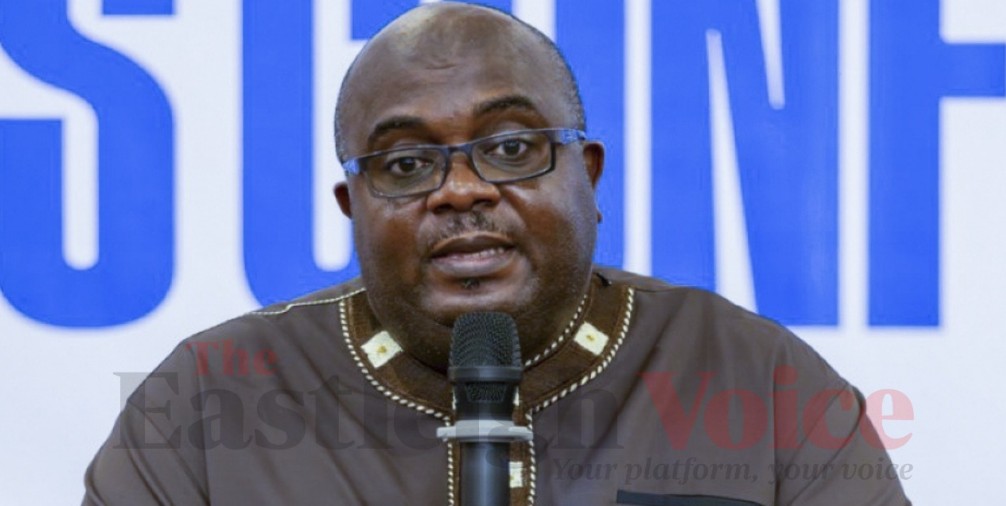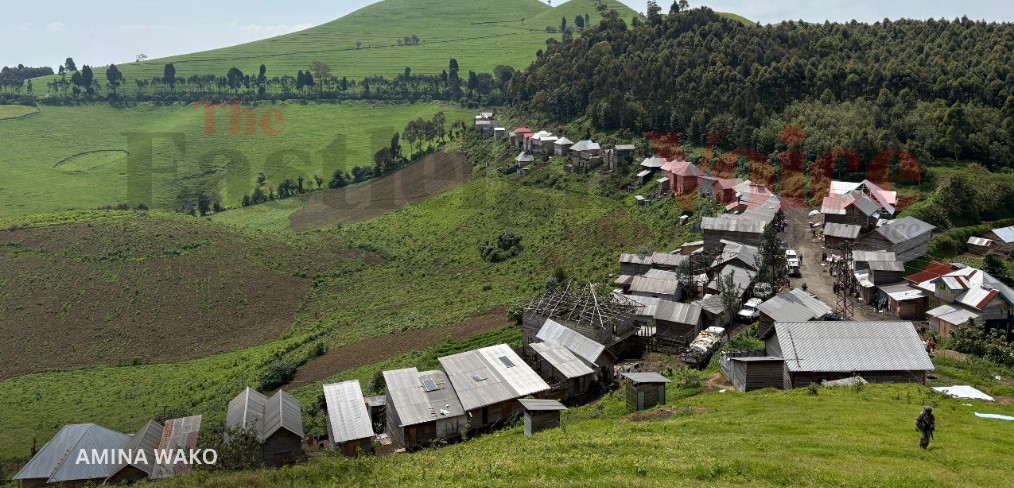M23 demands Burundi troops withdrawal, accuses Bujumbura of backing ethnic violence in eastern DRC

In Goma
The president of the M23 rebel group, Bertrand Bisimwa, has called for the immediate withdrawal of Burundian troops from eastern Democratic Republic of Congo (DRC), accusing them of enabling ethnic cleansing and advancing a genocidal agenda.
More To Read
- UN hails DR Congo-Rwanda peace deal amid ongoing hostilities in the east
- Scepticism grows over DR Congo-Rwanda peace deal
- African leaders hail historic peace agreement between Rwanda and DRC
- DR Congo, Rwanda vow to uphold Trump-backed peace deal
- OPINION: Before pointing at Rwanda, Belgium must finally confront its own African history
- How AI and robotics are improving underground mine safety in Rwanda
During a press briefing in Goma, Bisimwa accused the Burundian government of supporting the Democratic Forces for the Liberation of Rwanda (FDLR), a rebel group composed mainly of Hutu extremists linked to the 1994 genocide against the Tutsi in Rwanda.
“Burundi is fighting us alongside the Congolese government, and they are sheltering the FDLR so they can attack and kill our people. We have no relationship with Burundi. After the Doha talks, we expect their troops to return home,” said Bisimwa.
Bisimwa leads the March 23 Movement (M23), a rebel group that claims to protect the rights of marginalised Congolese Tutsi communities.
Acting in self-defence
He reiterated that M23 is acting in self-defence against what he described as an ongoing campaign of extermination targeting the Banyamulenge people in South Kivu.
He further accused Congolese intelligence of directing drone strikes that have caused civilian casualties.
“They monitor everything and coordinate strikes from the DRC government, which end up killing civilians,” he alleged.
Despite his criticism of Burundian authorities, Bisimwa distinguished between the Burundian government and its citizens.
“We have no issue with the people of Burundi, they are our brothers. But their leaders are using the military to kill Congolese civilians. We cannot support such a government. All we ask is for them to leave our land.”
Follow SADC example
He called on Bujumbura to follow the example of Southern African Development Community (SADC) forces, which he claimed had already pulled out of the region.
“The only viable option now is for the Congolese people and their leaders to solve their problems internally. We are at home and defending ourselves. We have no hostile intentions toward Burundi.”
Bisimwa also expressed disappointment in Burundian President Évariste Ndayishimiye, whom he had previously met before taking up arms.
Other Topics To Read
- Headlines
- Democratic Republic of Congo
- Democratic Republic of Congo
- Goma
- Rwanda
- Genocide
- eastern DRC
- M23 rebel group
- Tutsi
- FDLR
- Lawrence Kanyuka
- Bertrand Bisimwa
- Wazalendo militias
- Hutu extremists
- Banyamulenge
- Congolese Tutsis
- M23 demands Burundi troops withdrawal
- accuses Bujumbura of backing ethnic violence in eastern DRC
He recounted how the president once sympathised with the M23 struggle, likening it to the National Council for the Defence of Democracy Forces for the Defence of Democracy (CNDD-FDD)'s own past resistance in Burundi.
 Nturo village, Masisi territory in North Kivu, where over 300 houses were burned and several people were killed. The community has begun to rebuild their homes and return. (Photo: Amina Wako)
Nturo village, Masisi territory in North Kivu, where over 300 houses were burned and several people were killed. The community has begun to rebuild their homes and return. (Photo: Amina Wako)
“I visited Bujumbura several times and met with the president. He understood our plight, it mirrored his own. But today, he sends troops against us. Why fight what he once believed in?” Bisimwa questioned.
He drew broader parallels to other regional leaders, including Rwandan President Paul Kagame and Ugandan President Yoweri Museveni, who both came to power by resisting marginalisation.
“Museveni once said in Kinshasa that exclusion breeds revolt. I echo that message to the people of Kinshasa,” Bisimwa said.
He warned that oppressed communities would not remain passive.
“An oppressed person has nothing to lose. They fight with everything they have to survive, and that is what we will do.”
'Ongoing genocide'
In a statement released on May 25, 2025, M23 spokesperson Lawrence Kanyuka accused the Congolese army (FARDC) and its allies, including local militias and foreign forces, of perpetrating an “ongoing genocide” against the Banyamulenge in eastern DRC.
According to the statement, the violence is concentrated in Banyamulenge strongholds across South Kivu, including Rugezi, Minembwe, Mikenge, Kundondo, and Rurambo. M23 characterised the attacks as "terrorist acts" responsible for numerous deaths, injuries, mass displacements, and the destruction of homes and public infrastructure.
“This violence is causing an unprecedented humanitarian crisis,” the statement said, accusing both the international community and humanitarian organisations of maintaining a “guilty silence”.
M23 further claimed that the Burundi National Defence Force (FDNB) is acting in concert with FARDC, the FDLR, and local Wazalendo militias.
Allegations of Burundian complicity in atrocities are not new.
In October 2023, Burundian forces were accused of standing by as a massacre unfolded in Nturo village, Masasi territory in North Kivu.
Witnesses allege that FARDC, the FDLR, and Wazalendo militias burned alive many residents, mostly Congolese Tutsis, killing numerous civilians and destroying over 300 homes.
Harvard researcher Bojana Coulibaly, who is working on a book about genocidal ideology in eastern DRC, investigated the Nturo incident during a field mission. She described it as an act of “total destruction”, confirming Burundian military presence during the killings.
“The collaboration between the FDLR and Burundi’s military, emphasised again today by M23’s president, Bertrand Bisimwa, was confirmed during my field research,” Coulibaly posted on X.
“In Nturo, 300 homes belonging to Congolese Tutsis were burnt to the ground under the supervision of Burundian troops.”
Top Stories Today













































